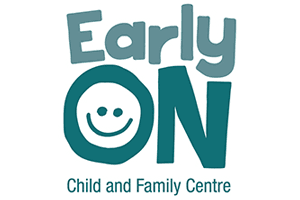Disappointment is an emotion that everyone experiences, no matter their age. For children, it can feel overwhelming, especially when something they’ve been eagerly anticipating doesn’t go as planned. A perfect example of this is the recent wave of excitement and heartbreak surrounding Taylor Swift’s Eras Tour concerts. For many kids, the chance to see their favorite artist perform live is a dream come true. But for some, that dream was dashed due to tickets being sold out, personal schedules clashing, or even unforeseen circumstances like illness or travel difficulties. The result? Disappointment that can be tough to process.
This is where psychotherapy can play a vital role in helping children navigate these difficult emotions. Here’s how therapy, paired with the lessons we can learn from Taylor Swift’s music and journey, can support kids in coping with disappointment.
Understanding the Impact of Disappointment on Kids
When children are disappointed, it can be a tough emotion for them to understand and articulate. Their brains are still developing, and they often don’t have the coping mechanisms needed to deal with negative feelings. Disappointment can look like sadness, anger, irritability, or even withdrawal. It can also affect their self-esteem or lead to them feeling like the world isn’t fair.
For kids who were hoping to attend a Taylor Swift concert, the disappointment can feel especially acute. Taylor’s music often resonates with themes of personal growth, love, and resilience. For a child, not being able to experience her music live, surrounded by other fans, can feel like a lost opportunity to connect with something meaningful.
How Psychotherapy Helps Kids Cope with Disappointment
Psychotherapy provides a safe space for children to express their feelings and learn strategies to manage disappointment in a healthy way. Here are a few ways therapy can help:
- Validating Feelings: It’s important for children to understand that their emotions are normal and valid. A therapist can help children recognize that feeling sad, angry, or upset about missing out on something they were excited for is perfectly natural. By acknowledging these emotions, children can begin to process them without judgment.
- Reframing Negative Thoughts: Cognitive-behavioral therapy (CBT) is often used with children to help them reframe negative thoughts. For example, a child might think, “I’ll never be happy again because I missed Taylor Swift’s concert.” A therapist can help them see the situation from a new perspective, such as recognizing other exciting opportunities that await or exploring how they can still connect with Taylor’s music through other means, like listening to her albums or watching concert videos online.
- Building Resilience: Disappointment is an unavoidable part of life, and learning how to bounce back from it builds resilience. Therapy teaches children coping strategies like mindfulness, self-compassion, and positive self-talk. By learning these skills, children can handle disappointment more effectively in the future.
- Encouraging Emotional Expression: Sometimes kids don’t know how to express their feelings, and they bottle them up. A therapist can guide them through activities like drawing, storytelling, or role-playing, which help children better understand and express their emotions in a way that feels safe and manageable.
- Setting New Goals and Expectations: When a child misses out on something they really wanted, it’s helpful to focus on what they can look forward to next. Therapists can help kids set new, achievable goals, like attending the next concert or finding new ways to enjoy their favorite artist’s work. This helps shift their focus from the disappointment to what’s possible.
Taylor Swift’s Resilience: A Model for Kids
Taylor Swift herself has experienced many setbacks and disappointments over the years, from public criticism to unexpected challenges in her career. What’s inspiring is how she models resilience through her music and actions. Songs like “You Belong With Me” and “Shake It Off” carry messages of staying strong and moving forward despite adversity. These songs can be powerful tools for teaching children that setbacks don’t define them. Just like Taylor has risen above difficult moments, children can learn that disappointment doesn’t mean the end of their dreams.
In therapy, children can use examples like Taylor’s story to learn how to manage their feelings and find ways to keep pursuing their goals, even if they encounter obstacles along the way. After all, missing one concert doesn’t mean there won’t be others. And in the meantime, kids can still enjoy and draw strength from the music that makes them feel understood.
Disappointment is tough, but it’s also an opportunity for growth. Whether it’s missing out on seeing Taylor Swift live in concert or facing any other type of setback, children can learn to manage these feelings with the help of psychotherapy. By exploring emotions, reframing negative thoughts, and building resilience, kids can gain the tools they need to cope with life’s disappointments in a healthy and positive way.
So, to all the kids who missed out on Eras Tour, remember: just because one concert didn’t happen doesn’t mean you can’t still be a part of Taylor’s world. Keep dancing, keep singing, and remember that the journey is just as important as the destination. 🌟
If you think your child might benefit from support in managing disappointment or any other emotional challenges, consider booking a session with a therapist who can guide them through this process. We’re here to help kids grow, heal, and thrive!




